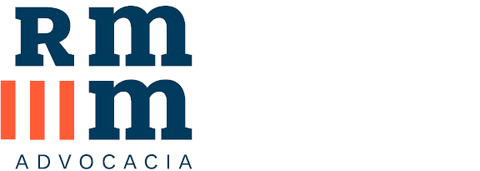Preliminary injunction to abstain from charging the Terminal Handling Charge (THC) on bill of lading

The Association of Ports of Rio de Janeiro Users (USUPORT-RJ) filed a request for an administrative preliminary injunction before ANTAQ on 30th March 2020, to secure that all national and foreign maritime transporters, as well as national and foreign intermediary agents:
i. refrain from charging, inserting or discriminating against the value of the Terminal Handling Charge (THC) in international transportation bills (Bs/L master, sub-master or house); and
ii. in compliance with the provisions of Art. 3 of Normative Resolution No. 34, of 19th August 2019 (RN-34), commence to prove to users, importers and exporters, and cabotage transport users the reimbursement of port expenses, which constitute the THC, in the exact costs incurred in the port operations described in the Agency's norm and through service invoices issued by the port terminals.
During the trial, Case No. 50300.008914/2020-64, which occurred in the 481st Ordinary Meeting of ANTAQ’s Board of Directors, Rapporteur Dr. Francisval Dias Mendes wrote the opinion of the Court rejecting both the preliminary injunction and the claims of merit.
Following, Director Adalberto Tokarski asked to examine the record of the proceeding and casted its circumstantiated opinion in the 483rd Ordinary Meeting, now under the Case No. 50300.013304/2020-82, arguing the distinctions present in the basic legal relationship of international maritime transport services for goods regarding the contracting parties, the form of remuneration and the object, in relation to handling services at the port terminal, among others, as shown in the table below:

In Dr. Adalberto’s opinion, pondering the distinctions pertinent to the economic facts reported above, the failure to place THC services on the bill of lading is an adequate and necessary measure since the cargo handling at a terminal is considered a port activity from a regulatory point of view.
Moreover, according to what is claimed by USUPORT, this failure to place THC services on the bill of lading forces users to bear administrative (tax) costs without due factual-regulatory correspondence of operations by linking the international maritime cargo transportation contract to port handling services, as explained in the table above.
Thus, Director Adalberto Tokarski casts its vote as it follows:
I – partially grant the request for injunction filed by the plaintiff, specifically so that this Regulatory Agency may issue a regulatory resolution determining that national and foreign maritime carriers, as well as national and foreign intermediaries, refrain from inserting THC in international bill of lading (Bs/L master, sub-master, house and others), which charge the form of the THC in a way apart from freight/maritime transport.
II – Determine that the Superintendence of Regulation promotes the transfer of procedural documents (SEI No. 1005989 and 1022362) so that, with the exception of the previous item of the provision of this vote, they are gathered for due purposes, within the scope of the process that deals with the development of item 3.1, of the Regulatory Agenda, in order to consider its fundamentals and notes in the midst of the analysis and final referral of those records.
However, during the court decision, Director Gabriela Costa concurred in the opinion of Rapporteur Dr. Francisval Mendes resulting in the final understanding of the collegiate:
I – Reject the preliminary injunction filed by the plaintiff because its requirements were absent;
II – On the merits of the case, reject the claim made by USUPORT/RJ, since the matter discussed and the pleas made are under analysis of the 2020/21 biennium Regulatory Agenda, with the discussions and contributions on the topic being deduced within the aforementioned agenda in order to enrich the theme and formalise any suggestions to be included in any regulatory revisions or the edition of new regulations on the matter; and
III - Determine that the Superintendence of Regulation of this Agency promotes the transfer of procedural documents (SEI No. 1005989 and 1022362) to the scope of the process that deals with the development of item 3.1, of the Regulatory Agenda, in order to consider its foundations and notes within the analysis and final referral of those records.
Before the importance of the theme, the Resolution No. 7754-ANTAQ, of 12th May 2020, (SEI No. 1037403) was annexed to the case records of process No. 50300.008278/2019-37. This resolution approves ANTAQ's Regulatory Agenda for the 2020/2021 Biennium, whose theme 3.1 addresses the "standardisation of basic service items provided by container terminals and definition of guidelines on inherent, accessory or complementary services".
Therefore, regarding the conflicts involving THC, ANTAQ chose to concentrate the discussions in Case No. 50300.008278/2019-37, aiming to debate and define the content of item 3.1.
Even if the standardisation becomes effective in the long run in order to guarantee the uniformity of decisions and, consequently, the longed-for legal certainty regarding such a controversial topic, it cannot be accepted, with due respect to ANTAQ, the regulatory agency failure to introduce solutions to users for situations that occur nowadays in the basis of the existence of a procedure that eventually and in the future will present a definition.
In this case, the dissenting opinion of Director Adalberto Tokarski is more appropriate because it partially grants the injunction and propose a resolution for this specific case, while suggesting inclusion of the case’s procedural documents and decisions in the process that addresses the development of item 3.1.
It is essential that ANTAQ review its position of awaiting standardisation regarding the THC subject by postponing decisions on the issue as users need efficient and swift responses to their conflicts and expect the regulatory agency to take a more assertive position.

Article originally published in the most recent version of Bulletin ANTAQ, an initiative of @Advocacia Ruy de Mello Miller that aims to systematize decisions made by the executive board of Brazil's National Waterways Transportation Agency (ANTAQ). The access to the full content of the periodic publication is granted exclusively to RMM's guests. If you wish to be added to our mailing list, please send a request to josecarlos@miller.adv.br.









